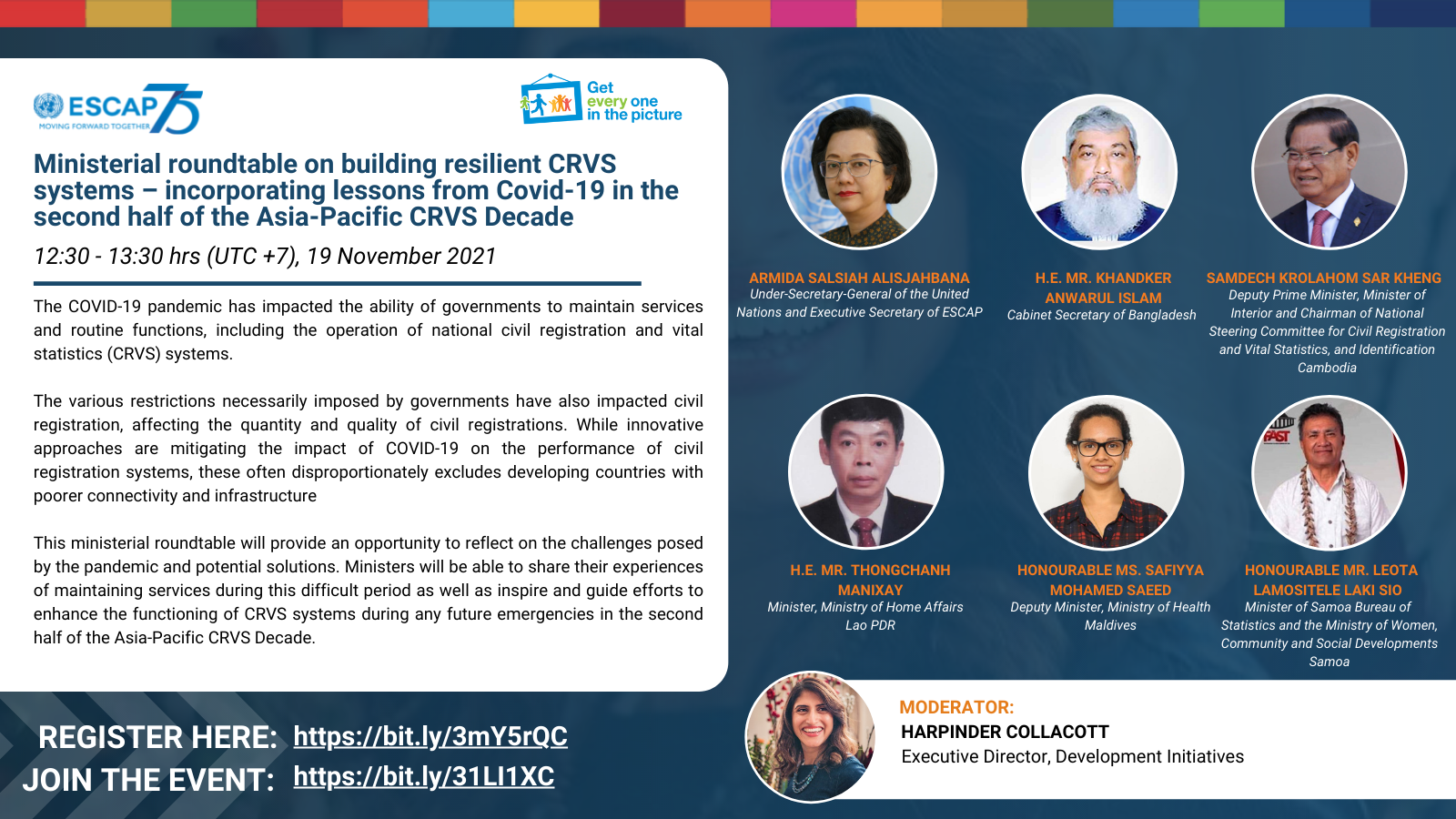Event Details
This ministerial roundtable was organized by ESCAP. It took place online on 19 November 2021, from 12:30 to 13:30 hrs, Bangkok time.
Overview:
The COVID-19 pandemic has impacted on the ability of governments to maintain services and routine functions, including the operation of national civil registration and vital statistics (CRVS) systems.
The universal, compulsory, continuous, permanent, and confidential recording of the occurrence of all vital events is undermined by the various restrictions imposed by governments (quarantines, lockdowns, social and physical distancing measures, workplace closures, transit shutdowns, etc.). The resulting changes in civil registration systems have a definite negative impact on the quantity and quality of civil registrations. Many CRVS systems have considered marriages and divorces to be less important vital events, and a number of countries have suspended their registration. While innovative approaches are mitigating the impact of COVID-19 on the performance of civil registration systems and are supporting the generation of data for health surveillance during a health crisis, this often disproportionately excludes developing countries with poorer connectivity and infrastructure
This ministerial roundtable provided an opportunity to reflect on the challenges posed by the pandemic and potential solutions. Ministers was able to share their experiences of maintaining services during this difficult period as well as inspire and guide efforts to enhance the functioning of CRVS systems during emergencies in the second half of the Asia-Pacific CRVS Decade.
Issues for discussion:
- How have countries responded to the challenges posed by the pandemic posed to the civil registration systems, ensuring the most marginalized and vulnerable populations also have access to vital services in the face of disruption and how are the systems managing to recover and adapt to the new situation?
- CRVS systems need to be strengthened to avert catastrophic consequences prior to emergencies, respond effectively to crises and ensure a sustainable recovery. How can Governments and development partners comprehensively make the CRVS systems more robust to future crises and shocks?
- The COVID-19 pandemic has demonstrated that a well-performing CRVS system in normal times may not perform well in crises and emergencies. What are the key considerations to guide the redesign of both mature and immature CRVS towards resilience?



